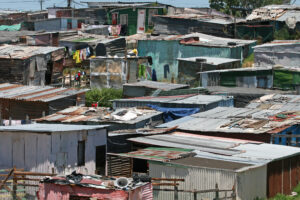Poverty and inequality has been cited as major priorities for the GNU.

As the government of national unity (GNU) yesterday wrapped up its first two-day Cabinet lekgotla, political economist Dale McKinley cited poverty and inequality as major priorities for the GNU.
Trade, Industry and Competition Minister Parks Tau said the tone during the first session of the gathering was set by President Cyril Ramaphosa highlighting economic growth and development as major challenges for South Africa.
Economic issues
According to McKinley, addressing poverty and inequality was “a number one issue” for cabinet.
“Dealing with economic issues does not mean that all other things are not that important – they are secondary.
“If the GNU does not begin to start introducing and monitoring the impact of fiscal and macro-economic policies, beginning to ensure basic income or social grants, small business development and building local economies, pumping money into a much more liquid economy as opposed to a contractionary one – the status quo will remain.
“We have to do away with austerity politics while obviously watching the bank balance and curbing irresponsible spending – opting for a much more expansionary fiscal monetary regime that will allow for the local economy to grow.
“The structural problem is that of government not pumping money into the proper areas and relying on big corporate capital, foreign direct investment and big projects, something which will continue to lead to the problems we have had for the past 20 years – very little economic growth and high joblessness,” maintained McKinley.
ALSO READ: Ramaphosa will announce Cabinet lekgotla outcomes at Parliament’s opening – Ntshavheni
Proactivity
GNU ministers and MECs who have hit the ground running included:
- Minister of Public Works and Infrastructure Dean Macpherson, who has unearthed R300 million cybercrime theft in the department.
- Gauteng MEC for agriculture Vuyiswa Ramokgopa, who pledged that ending hunger in the province is her priority. v Home Affairs Minister Dr Leon Schreiber, who has extended temporary visa concessions to safeguard applicants from adverse consequences caused by processing delays.
- Sport, Arts and Culture Minister Gayton McKenzie who is on a mission to make the broadcast of live Springbok test matches free to poor South African rugby fans.
Political commitment
Reflecting on how she has hit the ground running, Ramokgopa said: “One of my top priorities is to ensure a strong political commitment to combating hunger across Gauteng. This can be achieved by implementing stricter controls on food wastage, collaborating with large food retailers, the hospitality sector and of course many more.
“Additionally, we aim to expand the base of small-scale farmers and support the urban farming economy in Gauteng province.
“Recognising the importance of external stakeholders, we are actively engaging with them and industry experts to understand how the department can add more value to the industry at large.
“This includes small-scale farmers, large commercial farmers and various community-based and non-profit organisations involved in food safety and security issues,” added Ramokgopa.
EAD MORE: ‘No single party in GNU will unilaterally change policies’ − Magwenya
Support Local Journalism
Add The Citizen as a Preferred Source on Google and follow us on Google News to see more of our trusted reporting in Google News and Top Stories.






